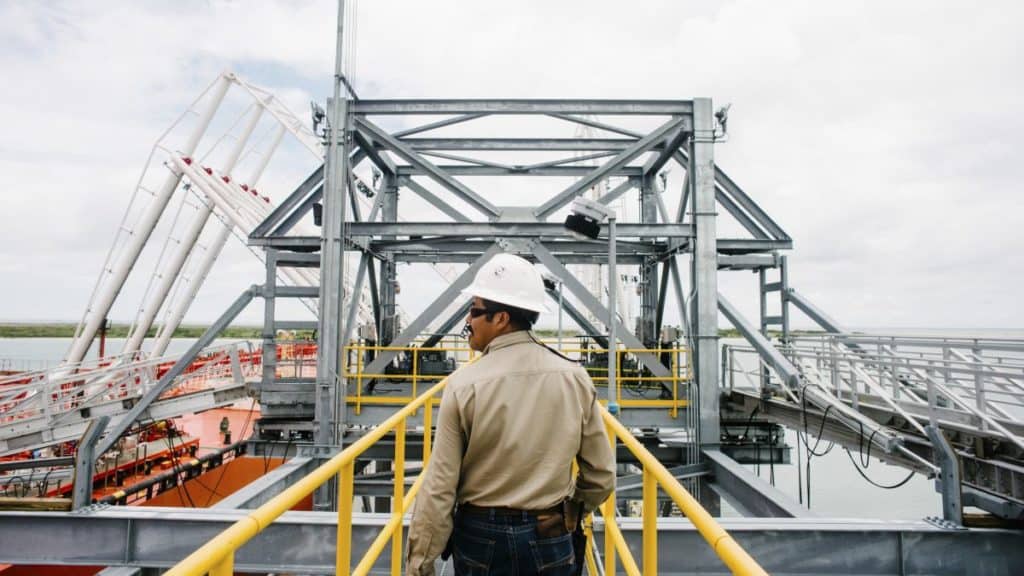
Occidental Petroleum, one of America’s most aggressive drillers of oil, is trying to figure out a way to wipe out its vast carbon footprint.
Vicki Hollub, Occidental’s CEO, told the Financial Times that she wants her oil company to eventually be “carbon neutral.”
Occidental (OXY), a leading shale oil producer and the No. 5 US oil company by market valuation, is experimenting with ways to capture greenhouse gases equivalent to the emissions released by its operations.
“I’m thinking about the long term for our shareholders,” Hollub told the FT. “We want to be the company that’s producing the last barrel of oil.”
A spokesman for Occidental confirmed the accuracy of the remarks attributed to Hollub, but declined to comment further.
The pledge could help make Occidental an environmental leader among US oil companies, which are grappling with a backlash over the environmental impact of drilling activities.
“It’s the largest American oil company to set the goal of becoming carbon neutral,” said Pavel Molchanov, an energy analyst at Raymond James.Occidental’s push to use carbon capture technology may have a dual-pronged benefit. It could save the company money while simultaneously quieting pressure from shareholders who are worried about climate change.”It’s a very elegant solution. It’s environmentally friendly and there is an economic value to it,” said Molchanov.
‘Absurd’ to claim carbon-neutrality?
But it’s not clear just how “carbon neutral” Occidental is aiming to be — nor how feasible the goal even is.It would be one thing for Occidental to offset the emissions from its drilling operations and supply chain. But it would be far more challenging, if not impossible, to cancel out the carbon released by the burning of its products, namely the millions of cars, buses and airplanes that run on its oil.”It’s not remotely realistic to eliminate the carbon footprint of that,” said Molchanov.
Climate activists voiced even deeper skepticism and continued to push for a shift away from fossil fuels in favor of clean energy.”It’s absurd for an oil company to claim it will become carbon neutral,” said Alex Doukas, lead analyst at Oil Change International, a group focused on exposing the costs of fossil fuels. “Occidental is telling a fairy tale reliant on carbon-sucking unicorns to try to save its outdated business.”
Environmental impact of the US oil boom
Houston-based Occidental has capitalized on the US shale oil boom by aggressively scaling up production in the Permian Basin of West Texas. Production in the Permian surged by 52% in the fourth quarter. And Occidental has promised to ramp up its Permian output even further.The shale revolution, which is being led by West Texas, has made the United States the world’s leading oil producer and reduced the nation’s reliance on foreign oil. But there are also environmental consequences — and they aren’t pretty.New US oil and gas development — and the burning of those fossil fuels — could unleash the same amount of carbon pollution as nearly 1,000 coal-fired power plants, according to a January report published by Oil Change International. The group called it a “climate catastrophe” that is arriving at precisely the worst time. total amount of carbon unlocked, including burning the oil gasoline and jet fuel.
Capturing carbon
Occidental told the Financial Times that it wants to reduce its carbon footprint by expanding on a process known as enhanced oil recovery, or EOR.Oil companies typically inject carbon dioxide into aging traditional oilfields in a bid to push out the remaining barrels. Instead of getting released into the environment, the carbon dioxide is left underground in the EOR process.Normally, oil companies use CO2 that is created naturally or produced at factories.But for Occidental to truly reduce its carbon footprint, it would have to extend this process to shale oilfields and capture carbon emitted by humans activity, such as at coal-fired power plants or cement facilities.Occidental told the FT it is running pilots to extend its EOR process to shale oilfields, instead of just traditional oilfields.”Instead of paying a factory for that CO2, Occidental can get it at a very low cost by capturing it. And there is a PR benefit from this,” said Molchanov.Other major oil producers have set climate goals in recent months.For instance, ExxonMobil (XOM) pledged last year to cut methane emissions by 15% by 2020. Methane is a powerful greenhouse gas that is blamed for significantly contributing to global warming. Exxon also announced plans to donate $1 million to a group urging Washington to enact a carbon tax.European oil majors have been more aggressive.Royal Dutch Shell (RDSA) is aiming to cut its carbon emissions in half by 2050. Shell became the first major energy company to link executive pay to carbon emissions. BP (BP) is linking the bonuses of 36,000 employees to greenhouse gas reduction targets.
